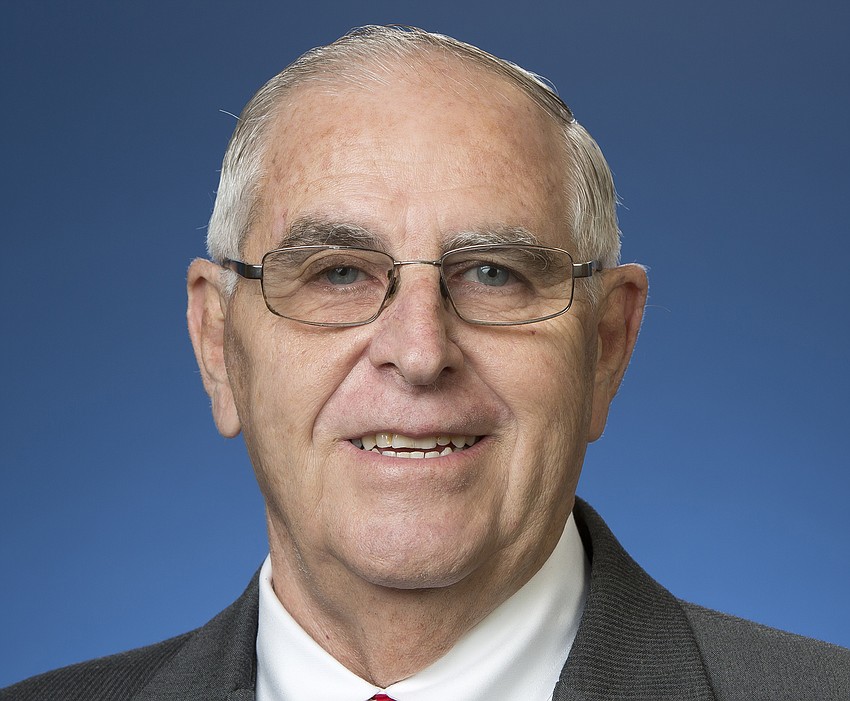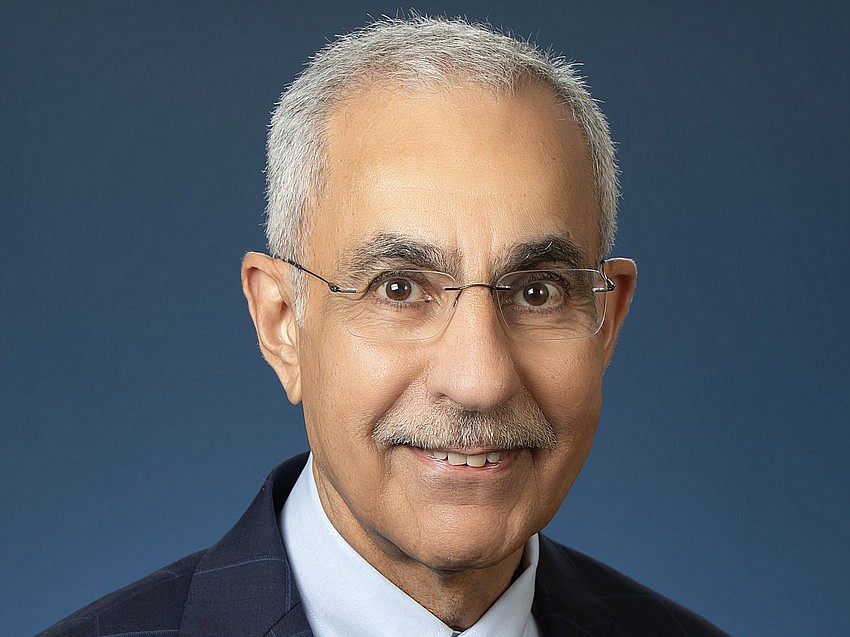
A deal to build the Jacksonville Jaguars a gleaming new stadium, keep them in the city for the next three decades and spare fans from sweating out late-summer game days under the oppressive Northeast Florida heat is one step away from being finalized.
On June 25, Jacksonville City Council members approved an agreement with the team that includes $775 million in public funding for a $1.4 billion makeover of EverBank Stadium and a 30-year lease for the upgraded facility. The 15-1 vote, with two abstentions and one member absent, sends the deal to the NFL owners group toward a final vote in October.
“I’ll never forget that moment when I was on the anchor desk and we announced what I thought to be the impossible, what a lot of us thought to be the impossible: that is that Jacksonville got its team 30 years ago,” said Mayor Donna Deegan, a former First Coast News anchor, recalling the night in 1993 when Jacksonville was awarded its NFL franchise.

“What an amazing night. Last night’s vote by the City Council and this gathering today will forever be etched into my memory, just like that night 30 years ago. This is just as big a deal, what we have today.”
Under the agreement, the city and team each will contribute $625 million for construction costs, with the city adding another $150 million for deferred maintenance and capital improvements that will allow the Jaguars to play in the stadium after construction begins.
The city also will provide $56 million for development of Riverfront Plaza, Shipyards West park and Metropolitan Park, plus improvements to the flex field adjacent to the stadium.
The stadium overhaul includes several design features to reduce heat, including a rooftop cover, a reflective exterior surface and openings at the corners that will allow for cross-ventilation.
The natural grass playing surface will give way to artificial turf, and other changes include an increased number of bathrooms, a wider concourse, new and expanded food and beverage options and a park-like entrance.
As the team prepares to take the approved agreement to the owners, here are answers to some questions surrounding it.
What are the next steps?
Jaguars President Mark Lamping says the team will present a legal analysis of the deal to the NFL owners group’s Stadium and Finance Committee in September.
Assuming the committee approves the deal, it goes to the full owners group in October.
Three-quarters approval from the owners group is needed for the project to move forward.
What’s the best way for companies to monitor project contracts?
The Jaguars will post all requests for proposals for service needs as public notices in the Jacksonville Daily Record.
To search for them online, go to JaxDailyRecord.com and click on Public Notices to search.
The Jaguars also committed to work with the city’s Jacksonville Small & Emerging Business program to provide work opportunities for small businesses and startups in the community.
JSEB provides qualified contractors, subcontractors and service providers with certification to bid on city contracts.The JSEB is here.
When will construction begin, and where will the Jaguars play while the work is being done?
Work is scheduled to start in February 2025. The team will play at EverBank Stadium during the 2025 NFL season with a slightly reduced capacity, then will return to EverBank in 2026 with a stadium capacity of about 43,500.
In 2027, the Jaguars will play their home games in either Orlando or Gainesville, but with the possibility of playing three home games in London.
Lamping said 75% approval from NFL owners will be needed for a temporary stadium lease.
Will the Jaguars sell personal seat licenses?
Lamping said numerous times that the team would not help pay for its share of the stadium through sales of personal seat licenses, which require fans to pay a premium price for the ability to purchase season tickets in a particular seat.
Will season ticket holders lose their seats, either during construction or after?
The team is freezing season ticket seniority through the 2026 season, meaning ticket holders have the option of maintaining their seats after construction begins.
In the 2027 season, fans will have the option of purchasing tickets in the temporary location to maintain their seniority for tickets in the new stadium.
A ticket purchase in the temporary stadium will not be a requirement to maintain seniority, however, according to the team’s website.
For the 2028 season, season ticket holders may be offered a different but similar seating location in the new stadium.
If a fan’s seat no longer exists under the new stadium’s seating configuration, the team says it will offer the “most comparable location available.”
Fans who want a different seat will be able to choose one based on seniority from seats not already held by other season ticket holders.
Where does the community benefits agreement stand?

Randy White, who became Council president July 1, brokered a plan to separate $94 million of the city funding from the community benefits agreement and consider it as standalone legislation.
That money, which had been included with $56 million in funding for parks and the flex field next to the stadium, is for workforce development, affordable housing and homelessness services for the Eastside ($30 million) and countywide ($64 million).
White pledged to schedule Council consideration of the uncoupled community benefits agreement funding to begin immediately after Council’s annual summer break the first two weeks of July.
Why did Council member Mike Gay vote against the deal?
Gay said there was “a good deal wrong” with the agreement and felt it needed to be discussed further.

Among his concerns, he flagged the city’s plan for paying for its portion of the funding through revenue generated by the voter-approved Better Jacksonville Plan, a half-cent sales tax increase for public infrastructure projects.
He questioned whether voters intended to include stadium improvements among the projects in the Better Jacksonville Plan and suggested they deserved a “bite at the apple” to say whether they approved the funding being used for that purpose.
Gay also argued that such features as the roof cover weren’t basic needs for the stadium and that Council should consider not funding them.
Another concern was about how the stadium funding would affect the city budget amid other looming expenditures, such as building a new jail and paying off completion grants for several Downtown redevelopment agreements and for economic development projects elsewhere in the city.
This is the most expensive single capital project in the city’s history, but approval took two weeks. How was that possible?

Ron Salem, whose term as Council president ended June 30, credited a process that began with the team surveying fans about what they wanted in a new stadium and continued with community meetings for residents to learn about the stadium deal, ask questions and raise concerns or objections.
Then came an accelerated Council process that allowed public comments about the deal while crunching Council committee meetings, workshops and hearings into a two-week period.
Between those public meetings and private sessions with the team and mayor’s office, Salem said, Council members were able to get their questions answered.

“The Council members have all cooperated because everybody – the administration, the City Council and the Jaguars – all wanted this out before the break,” he said. “I don’t think anyone can say that they weren’t part of the process. And I think that’s the key.”
It didn’t hurt that the deal was generally well accepted by residents who turned out to the community “huddles” on the stadium, which reduced political risk for Council members in supporting it.
It remains to be seen whether the uncoupling of the community benefits agreement funding will affect public opinion about the stadium deal.
A poll before the Council vote indicated that support for the deal fell sharply without the community benefits agreement attached.
On the Jaguars’ end, Lamping said the team learned from the 2021 defeat of Khan’s proposed Lot J development next to the stadium.
Lamping said Mayor Lenny Curry’s office controlled the narrative on that $233 million project, which included an entertainment district, apartment buildings and a hotel.
“We decided coming out of that, if we’re going to fail, we want to make sure that we’re failing through our own dialogue and not looking and saying, ‘I wish this third party would have done something differently,’” he said.

What happens if Shad Khan moves the team, say to London, during the 30-year agreement?
If the Jaguars leave Jacksonville, a nonrelocation agreement in the stadium package obligates them to repay the city 100% of the public funding if the move happens in the first through 14th years of the team’s 30-year lease with the city.
From there, the payback requirement declines by 6.25% per year, from 93.75% in year 15 to 6.25% in the 29th year and zero in the 30th year.
What happens if Khan sells the team?
The agreement would transfer, with the new team owner automatically assuming all of the obligations the Jaguars currently hold.
Who will build the new stadium?
The Jaguars say they expect to award the construction bid by the end of July.
The team has a contract for preconstruction services through the end of the month with Dallas-based AECOM Hunt/Barton Malow.
What happens if the other NFL owners oppose the deal? Or is the October meeting just a formality?
Lamping and Khan say league owners have questions about the deal, but no one involved in the agreement from Jacksonville’s end has expressed serious concerns about its passage.
“We’re very confident that we’ll be able to get it across the finish line,” Lamping said.